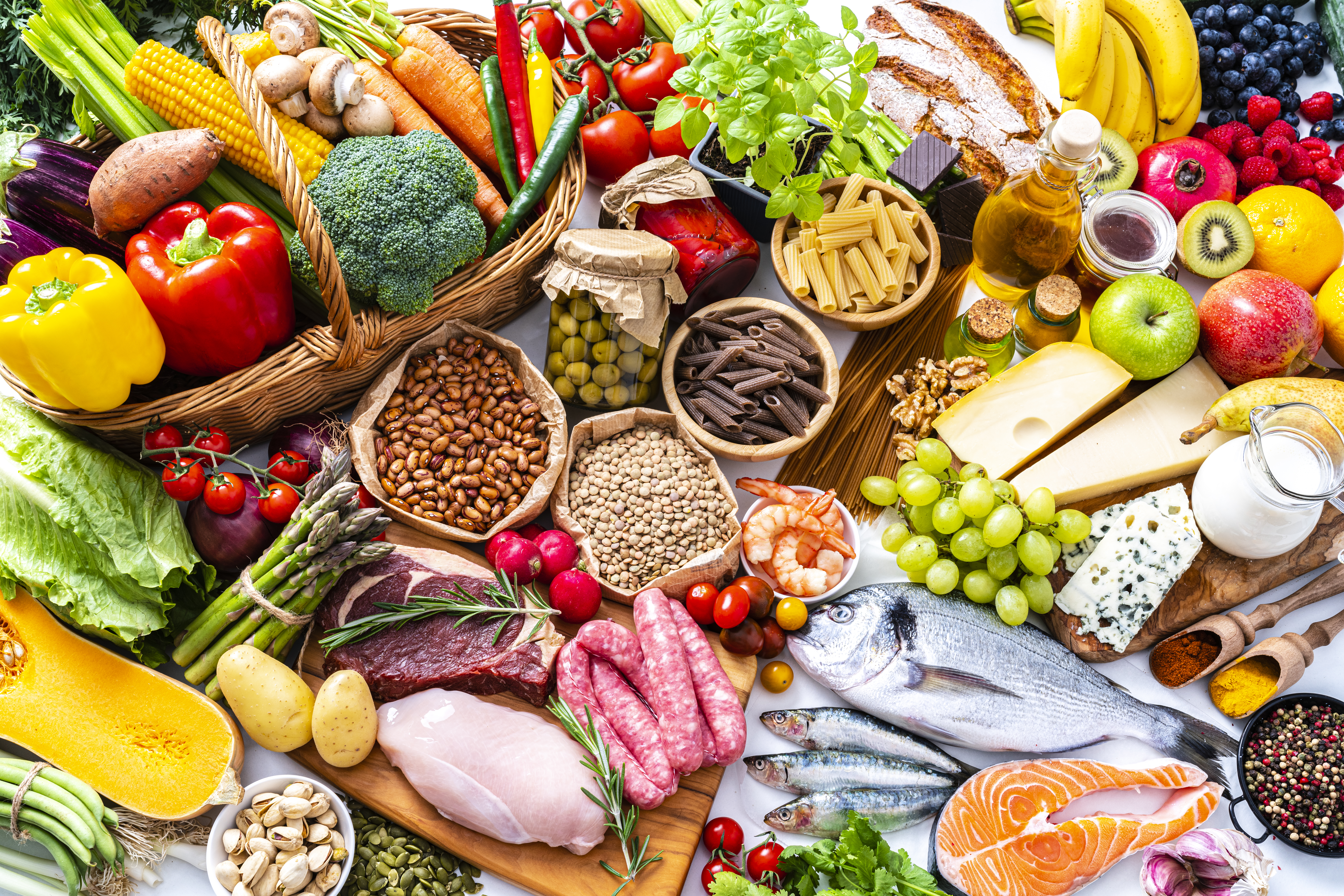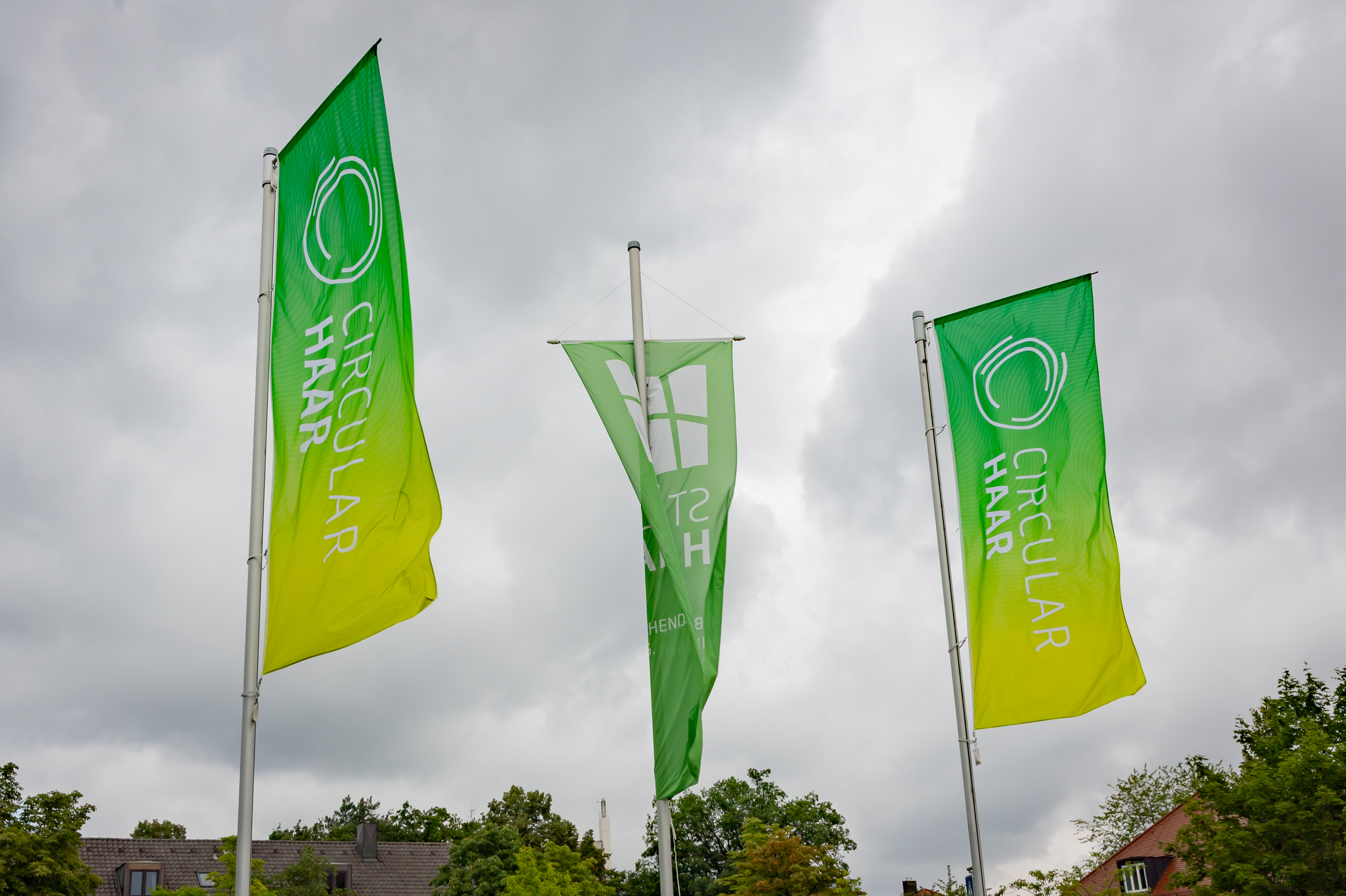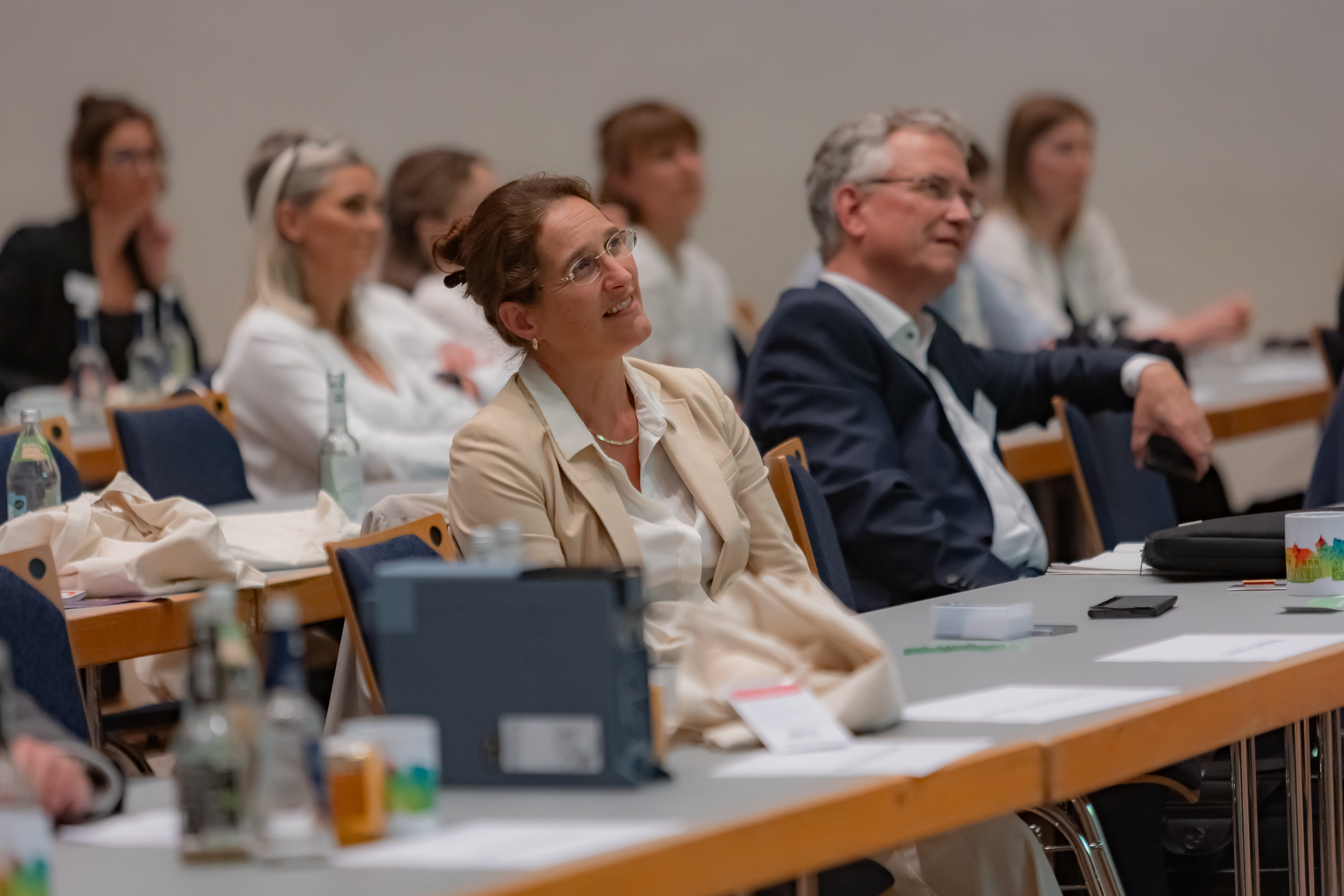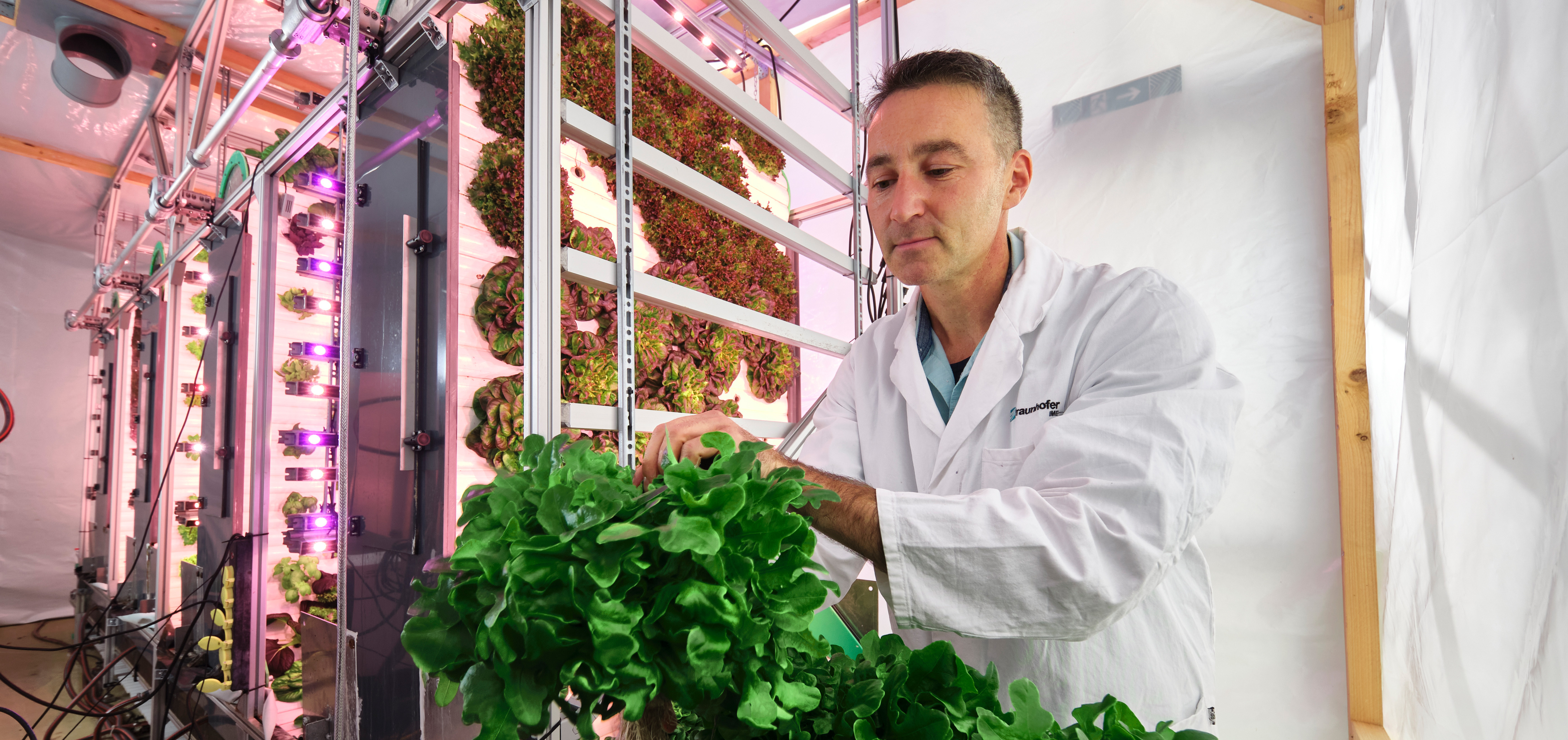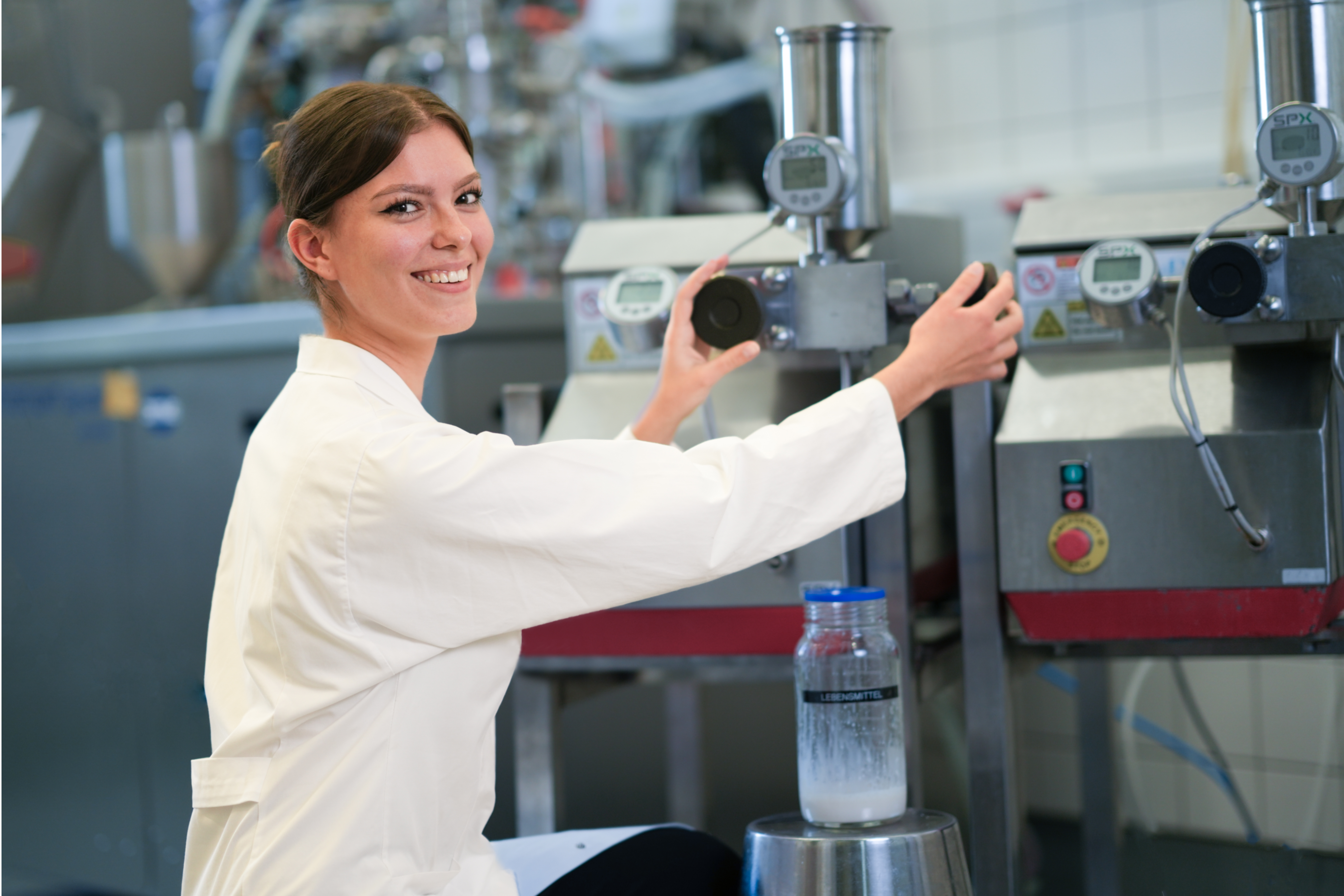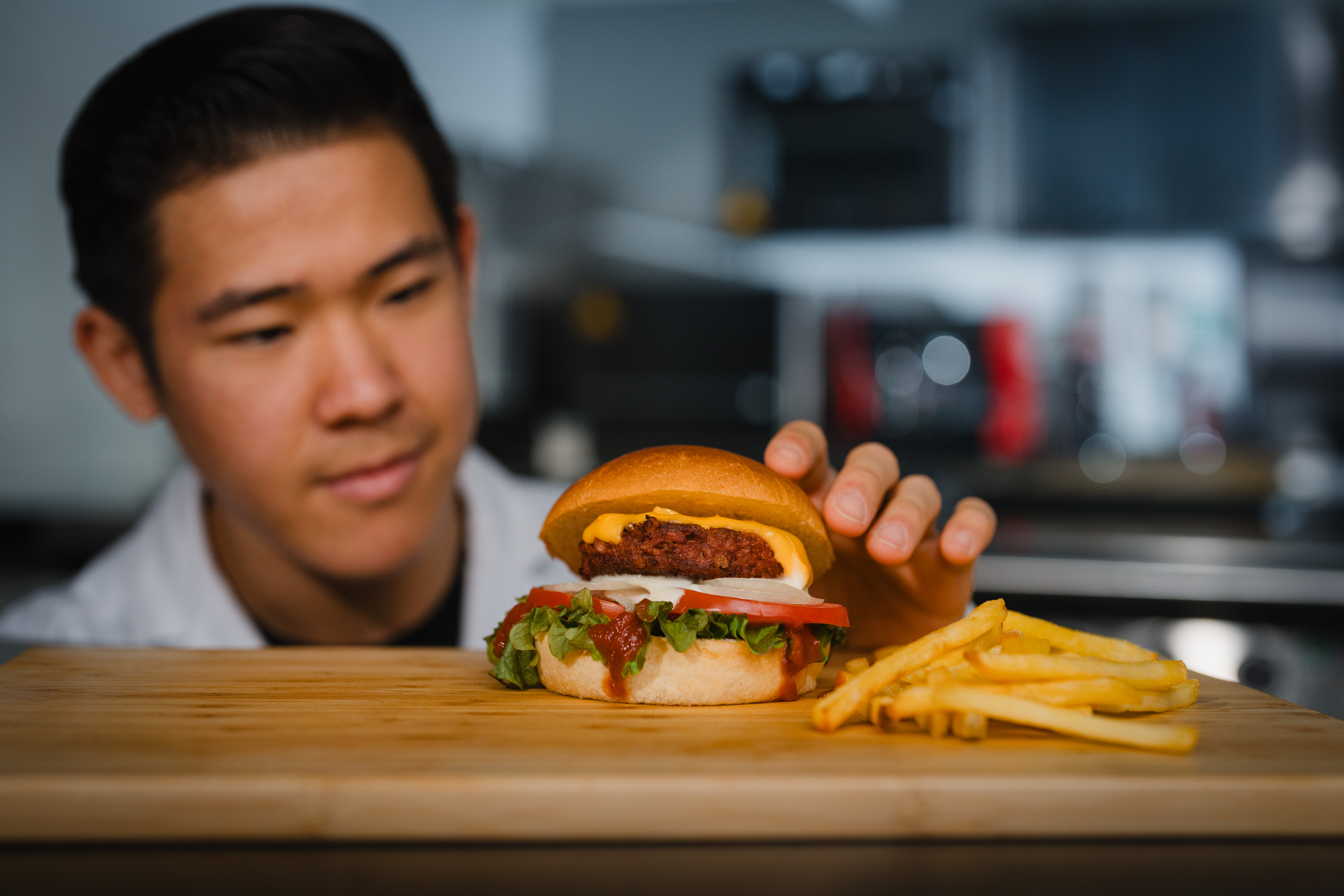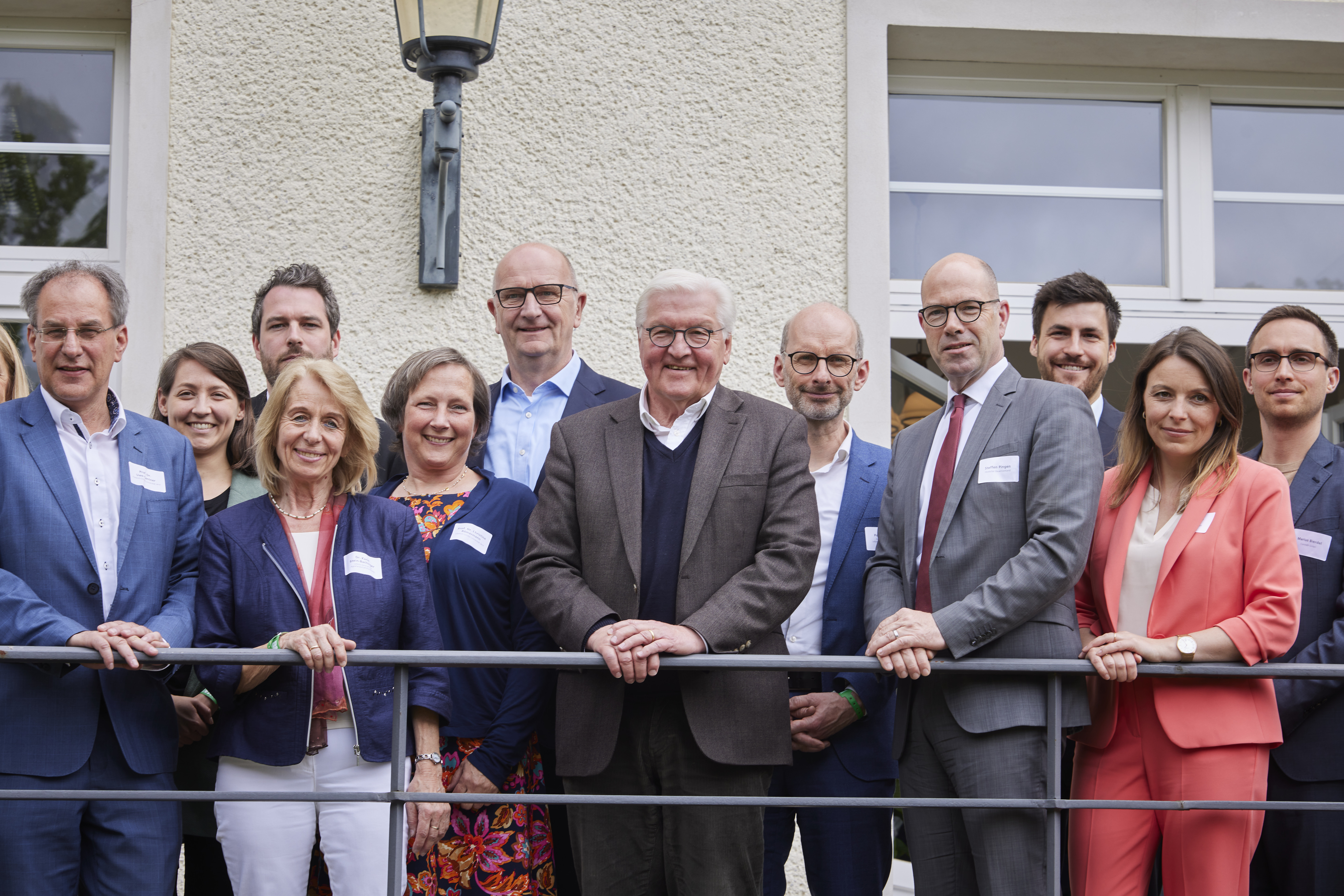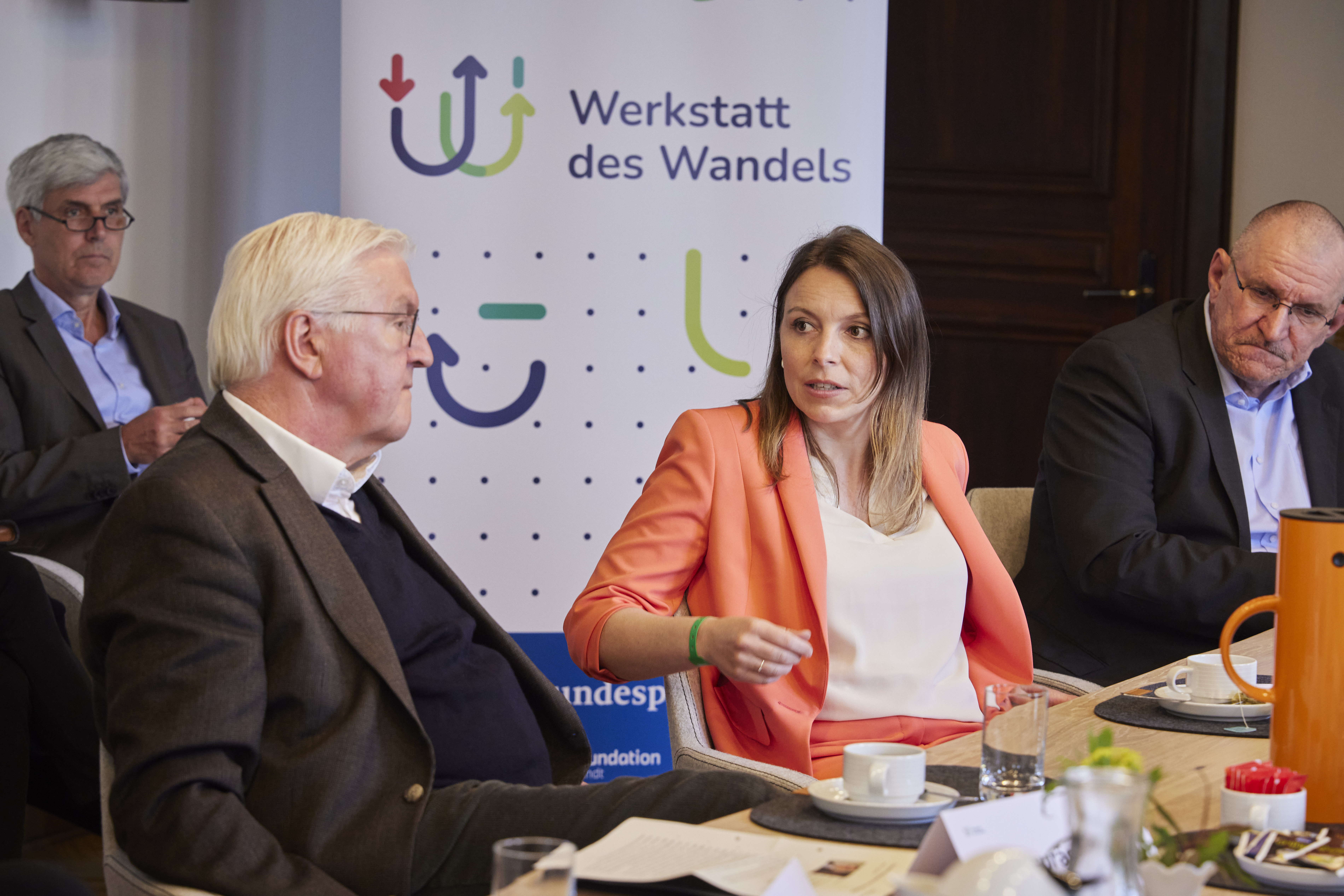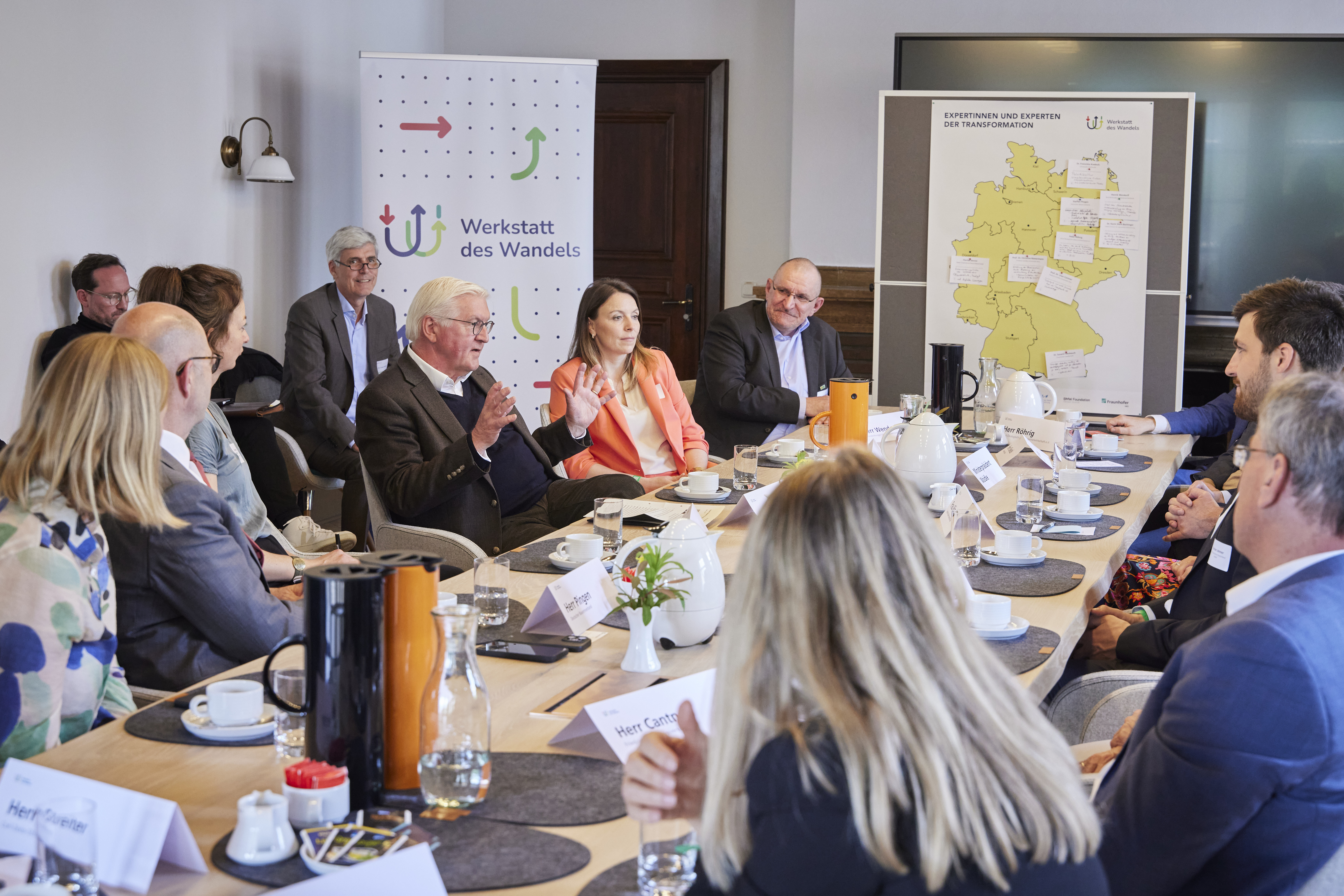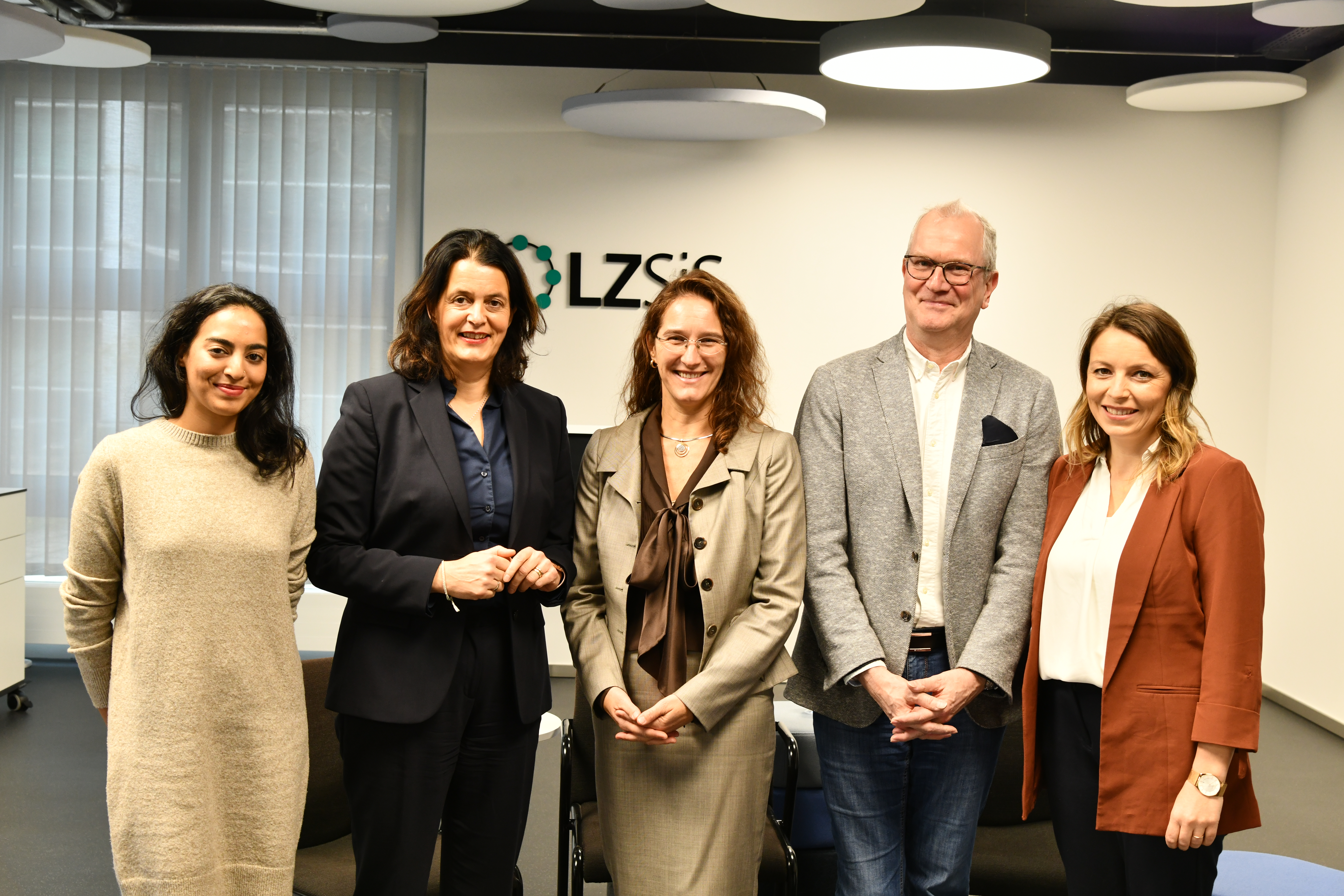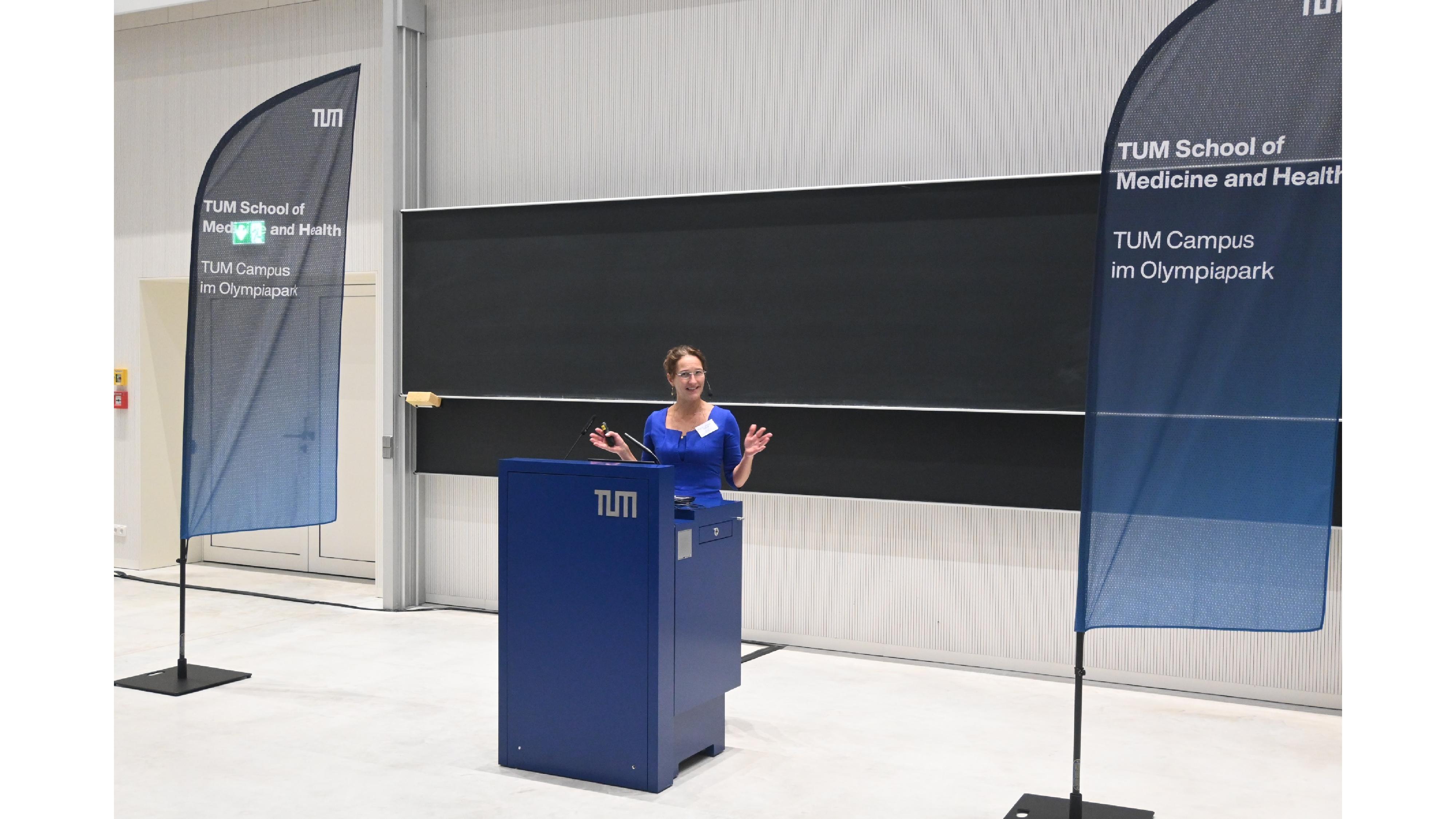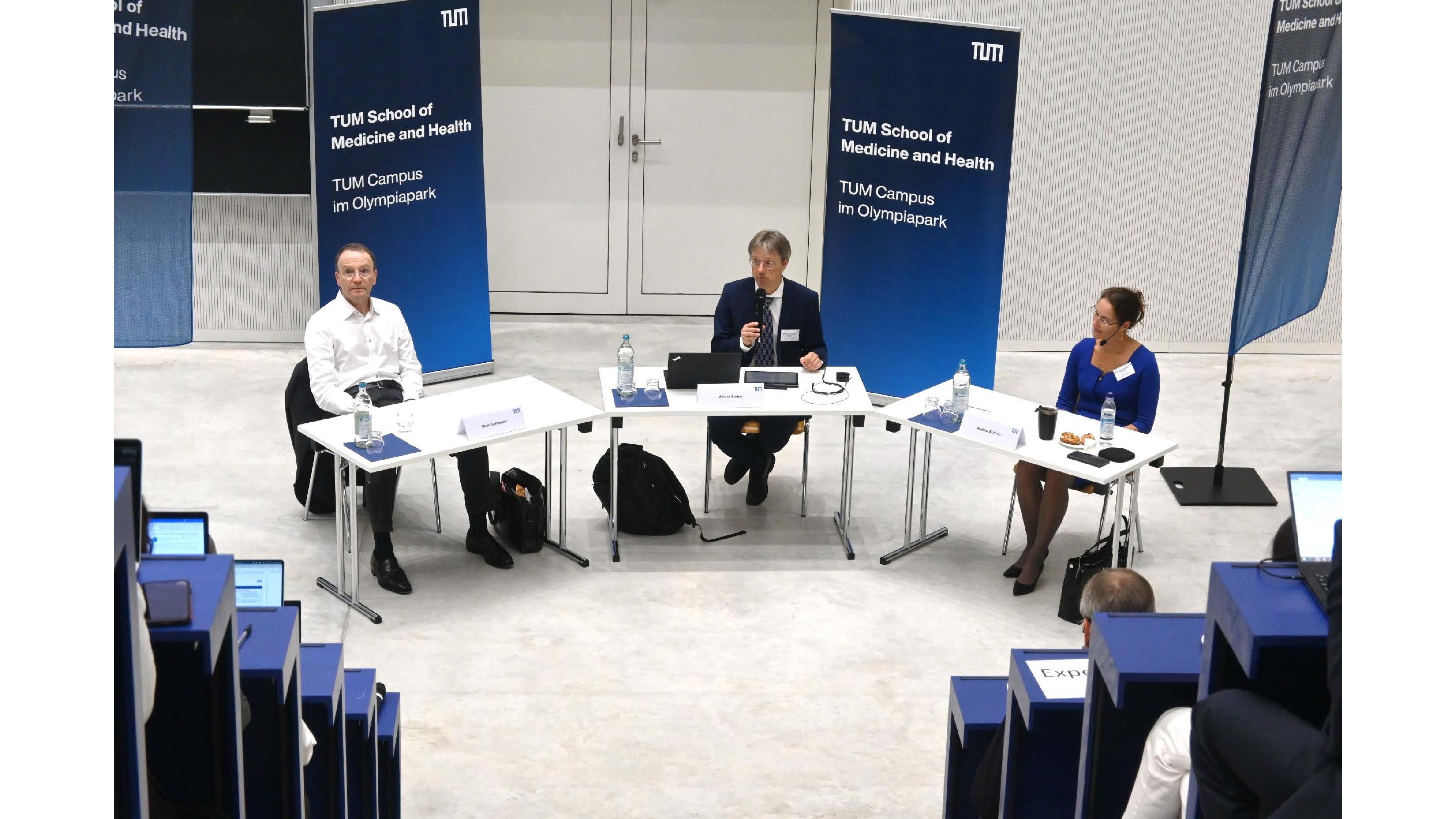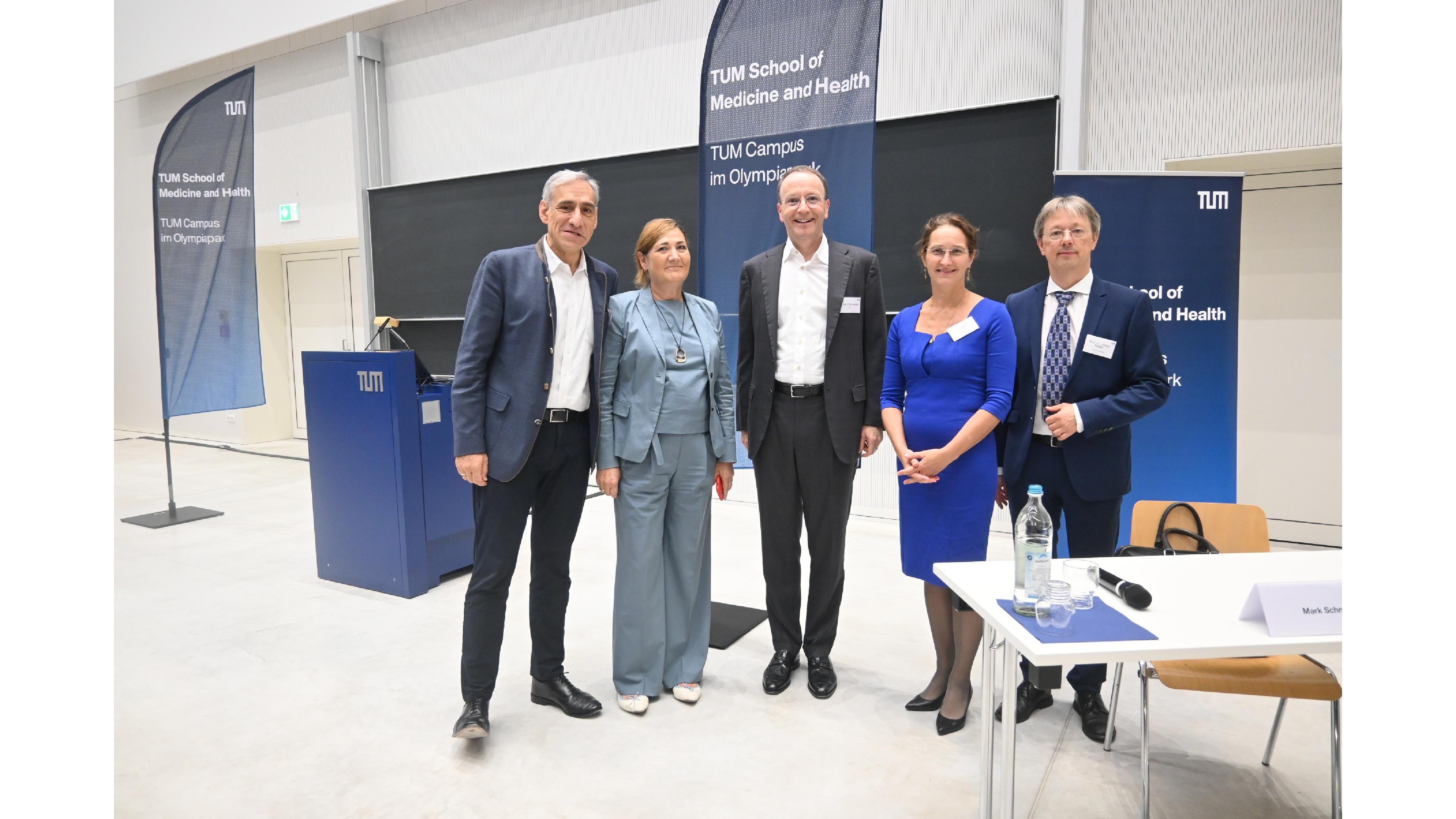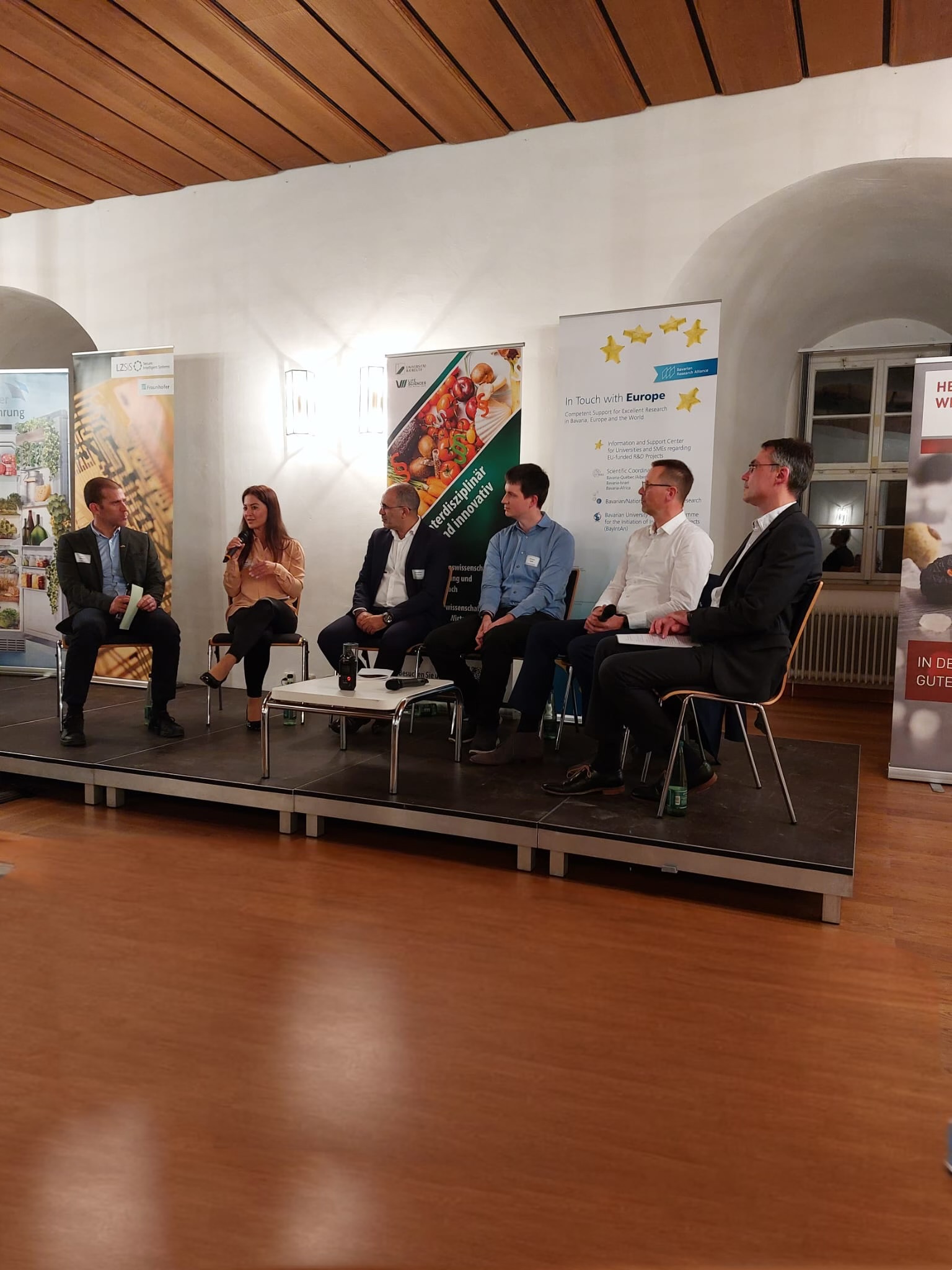The Future Forum on Circular Plastics Economy from July 1 - 3, 2025 in Berlin was attended by top-class speakers and provided important stimulus for the transformation towards a circular plastics economy.
The event focused on the exchange between politics, science and industry on concrete solutions for a functioning plastics cycle and how crucial cross-sector research and interdisciplinary cooperation are for sustainable innovations.
On behalf of the Fraunhofer-Gesellschaft, Prof. Dr. Andrea Büttner, Institute Director at Fraunhofer IVV and spokesperson for the Agriculture and Food Industry Alliance, spoke with Dr. Beate Baron, Federal Ministry for Economic Affairs and Energy, Dr. Susanne Lottermoser, Federal Ministry for the Environment, Climate Protection, Nature Conservation and Nuclear Safety, Mr. Stefan Müller, Federal Ministry of Research, Technology and Space and Dr. Torsten Heinemann, Covestro Deutschland AG about the strategic development of plastics recycling in Germany and Europe - also with the help of AI.
Beforehand, State Secretary Dr. Rolf-Dieter Jungk from the Federal Ministry of Research, Technology and Space had taken a tour of the Future Forum to find out about the latest technological developments and joint projects between industry and research on digitalization and the use of artificial intelligence in plastics recycling.
There was a consensus that the circular economy is system relevant. It is not just about recycling, it is about keeping material flows in the country and making them usable in the long term. Prof. Büttner emphasized that the technologies and know-how are available, but must also be used. Fraunhofer is doing pioneering work here in close cooperation with industry. What is needed now is a scale-up so that these technologies can achieve an industrial breakthrough. This requires targeted investment from industry and politics as well as a clear commitment to technological openness.
These five member institutes of the Fraunhofer Agriculture and Food Industry Alliance contributed their expertise to the Circular Economy Future Forum:
- Fraunhofer IVV
- Fraunhofer UMSICHT
- Fraunhofer IIS
- Fraunhofer IOSB
- Fraunhofer IZF
The Future Forum 2025 ties in directly with the technological developments of the two measures funded by the Federal Ministry of Research, Technology and Space, AI Application Hub for Plastic Packaging and KuRT, in which partners from industry, science, politics and society are working on recyclable solutions for the design, production and recycling of plastics and plastic packaging.
Further information on the event can be found here.
 Fraunhofer Agriculture and Food Industry Alliance
Fraunhofer Agriculture and Food Industry Alliance